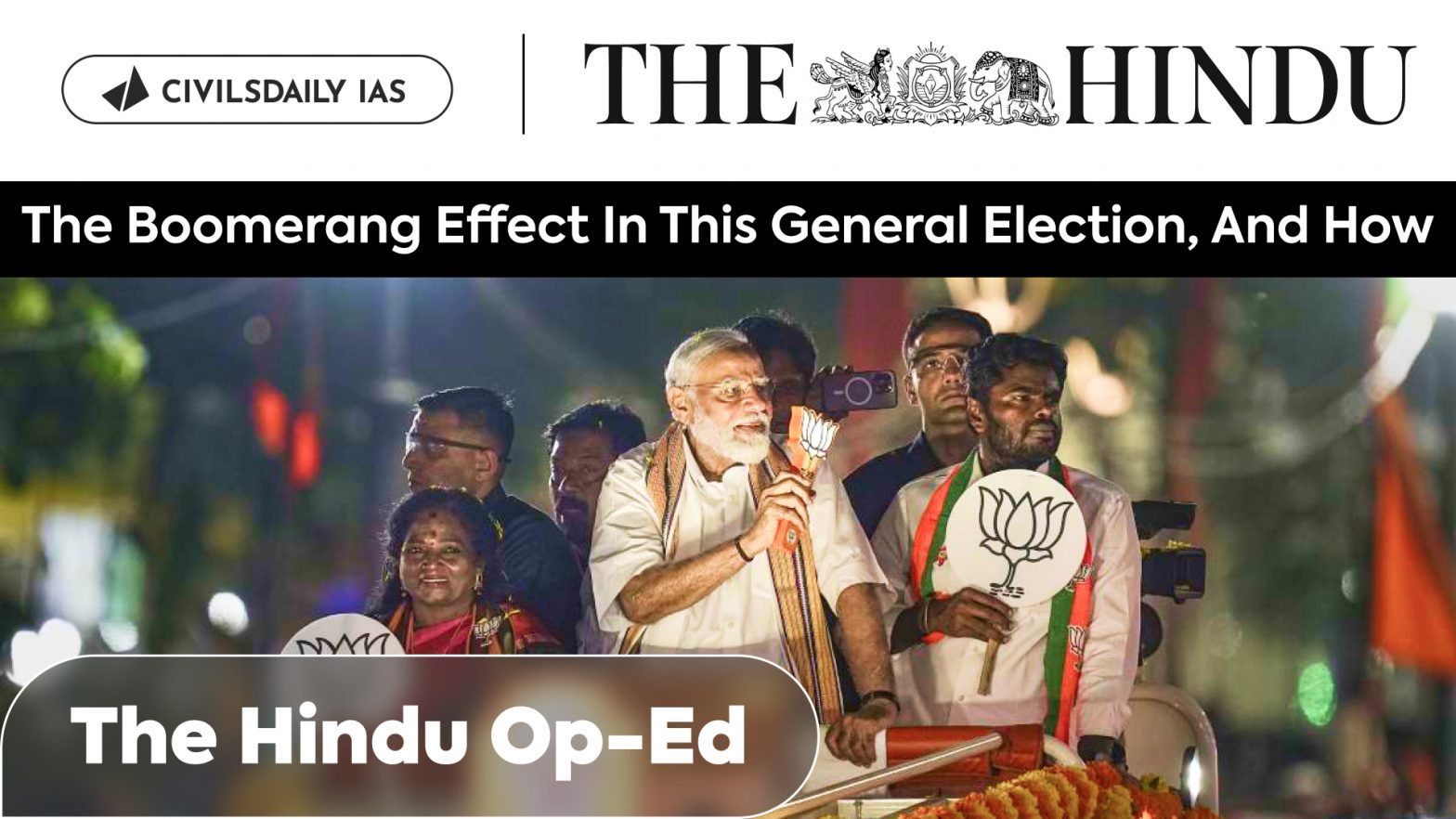| PYQ Relevance: Q. Discuss the role of the Election Commission of India in the light of the evolution of the Model Code of Conduct. (UPSC IAS/2022) Q. To enhance the quality of democracy in India the Election Commission of India has proposed electoral reforms in 2016. What are the suggested reforms and how far are they significant to make democracy successful? (UPSC IAS/2017) |
Mentors Comment: The 2024 general election verdict has various interpretations. Some believe it has expanded the space for dissent and democracy, while others see it as a check on Prime Minister Modi’s perceived authoritarianism. Philosophically, it signifies a civilisational response against the BJP’s Hindutva project, which has polarized Hindus rather than uniting them, proving counterproductive.
Let’s Learn!
Why in the News?
- Interpreting the Outcome: The 2024 general election outcome has sparked diverse interpretations, portraying it either as a resurgence of dissent and democracy or as a check on what critics label as Prime Minister Narendra Modi’s authoritarian rule.
- Deeper Philosophical Narrative: Beyond surface impacts, the election outcome reflects underlying philosophical shifts in Indian politics.
Philosophical Underpinnings of the Verdict
- Resurgence of Civilizational Ethos: The verdict can be interpreted as a revival of India’s civilizational ethos, countering the BJP’s Hindutva agenda.
- Polarization within Hindu Society: Hindutva’s attempt to unite Hindus against perceived threats has instead deepened divisions within Hindu communities.
Constitutional Significance
- Central Theme of the Election: The Constitution emerged prominently in the election discourse amid concerns over potential amendments that could impact affirmative action for backward castes and tribes.
- Critique by RSS and Allies: Historically, the RSS and its allies have critiqued the Constitution, seeking to undermine its provisions despite assertions of commitment to secularism.
The Role of the Constitution
- Symbol of Corrective Justice: The Constitution symbolizes corrective justice for historical injustices within Hindu society and stands against efforts to glorify a selective Hindu past that marginalizes minorities.
- Hypocrisy of Right-Wing Rhetoric: While proponents claim secularism as inherent to Hindu ethos, their rhetoric often targets and demonizes minorities, undermining their claims of upholding constitutional values.
Political Repercussions
- BJP’s Electoral Setback: The BJP’s setback in the 2024 elections signals public rejection of attempts to manipulate the Constitution and exploit anti-minority sentiments.
- Ayodhya Defeat: The electoral defeat in Ayodhya, where a Dalit candidate prevailed, underscores voters’ prioritization of social justice over religious symbolism, challenging BJP’s political strategies.
Future Trajectory of Hindutva
- Coalition Governance Dynamics: With a coalition government necessitating broader consensus, the focus on amending the Constitution may diminish temporarily.
- Vigilance of the Opposition: The Opposition must remain vigilant against future attempts to amend the Constitution for partisan gains, ensuring its resilience against divisive agendas.
Conclusion: The 2024 election marks a pivotal moment where the Constitution emerged as a safeguard against attempts to reshape India’s socio-political fabric. The BJP’s electoral setbacks underscore the enduring significance of constitutional values in upholding inclusive democracy. Upholding social justice and preventing the exploitation of marginalized communities should remain paramount, ensuring unity amidst India’s diversity.

